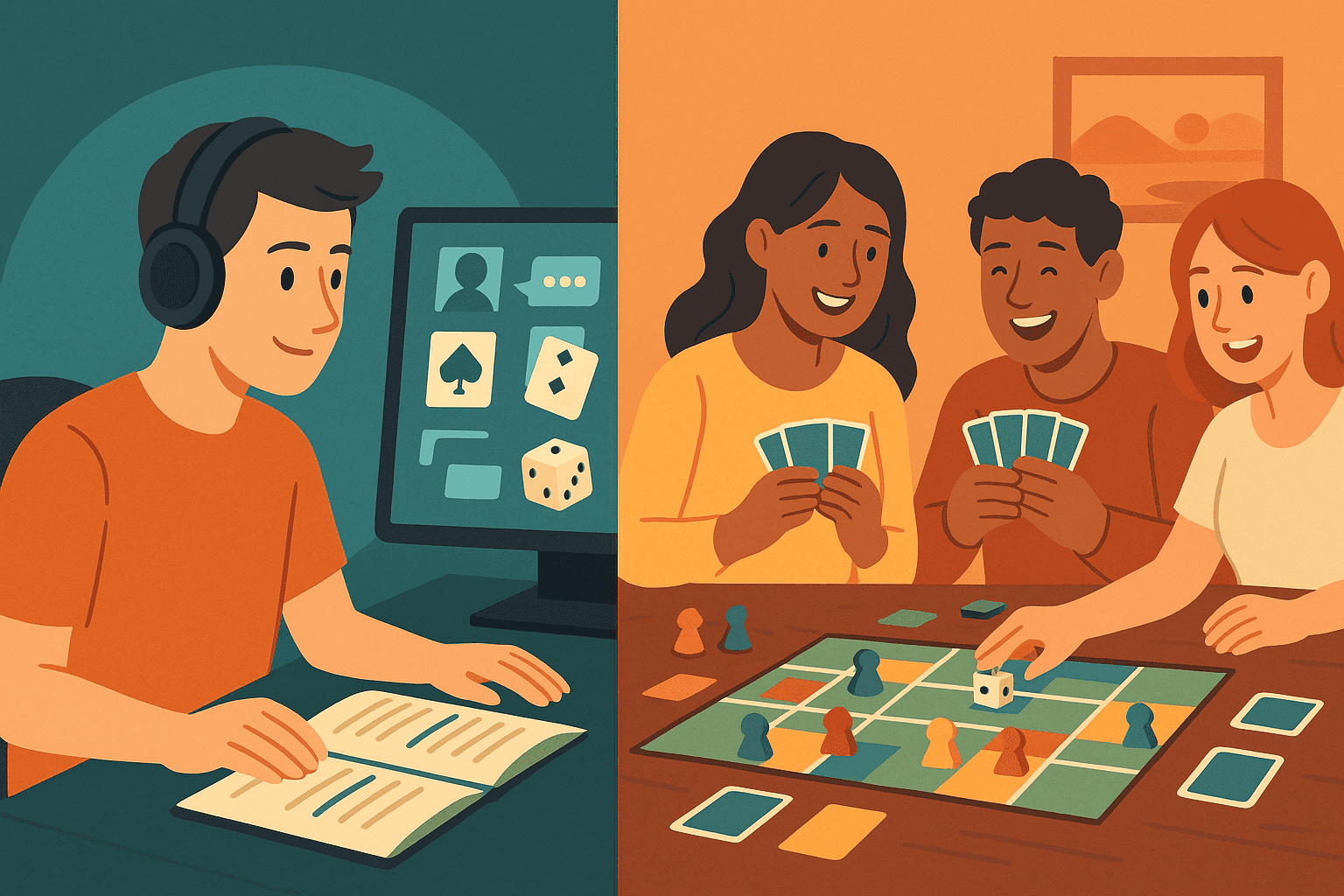
Online vs. Offline Gameplay: Pros and Cons
The gaming world has evolved rapidly over the last few decades, offering players more choices than ever before. One of the biggest decisions gamers face today is whether to play online or offline. Online gaming connects you to a global community and provides endless multiplayer possibilities, while offline gaming offers control, immersion, and flexibility. In this guide, we’ll explore the pros and cons of each to help you decide which option suits your playstyle best.
Created By Adam Davis Fernsby
Online vs. Offline Gameplay: Pros and Cons
The gaming world has evolved rapidly over the last few decades, offering players more choices than ever before. One of the biggest decisions gamers face today is whether to play online or offline. Online gaming connects you to a global community and provides endless multiplayer possibilities, while offline gaming offers control, immersion, and flexibility. In this guide, we’ll explore the pros and cons of each to help you decide which option suits your playstyle best.
Online Gameplay
Online gaming has revolutionized the way we play, offering fast-paced competition, social interaction, and a nearly limitless library of games across platforms.
Advantages of Online Gaming
- Global connectivity: Play with friends or compete against strangers worldwide in real-time.
- Wide variety of games: Access thousands of genres, from competitive esports and MMORPGs to casual puzzle apps.
- Regular updates: Developers release patches, new features, and events that keep the experience fresh.
- Social interaction: Connect with friends via chat, voice calls, or multiplayer modes.
Disadvantages of Online Gaming
- Internet dependency: A stable connection is required; lag and server issues can ruin the experience.
- Additional costs: Many games rely on subscriptions, in-game purchases, or premium upgrades.
- Toxic environments: Some online communities can be competitive or negative, affecting the fun.
- Privacy and security risks: Playing online often requires sharing personal data, which can carry risks.
Offline Gameplay
Despite the growth of online gaming, offline games remain popular thanks to their immersive experiences and independence from internet access.
Advantages of Offline Gaming
- Play anywhere, anytime: No need for Wi-Fi or data connections.
- Better performance: No server lag or connection drops, providing smoother gameplay.
- Immersive storytelling: Offline games often focus on single-player campaigns with rich plots and detailed worlds.
- Full control: No forced updates, server outages, or time-limited events.
Disadvantages of Offline Gaming
- Limited multiplayer options: Offline modes often restrict real-time social gaming.
- Less frequent updates: Offline titles rarely get the same level of fresh content as online games.
- Reduced social engagement: No chat systems, online leaderboards, or global matchmaking.
How to Choose the Right Option
The best choice depends on your gaming preferences and lifestyle:
- If you enjoy competition and team play, online gaming offers endless opportunities.
- If you prefer storytelling and immersive experiences, offline gaming may be better suited.
- Consider your internet reliability, budget, and how social you want your gaming to be.
Conclusion
Both online and offline gaming have their own strengths and weaknesses. Online gaming is ideal for social players who want constant updates and worldwide interaction, while offline gaming offers freedom, focus, and immersive storytelling. The best approach might be to explore both worlds — mixing online multiplayer with offline single-player adventures can give you the perfect balance of fun and flexibility.